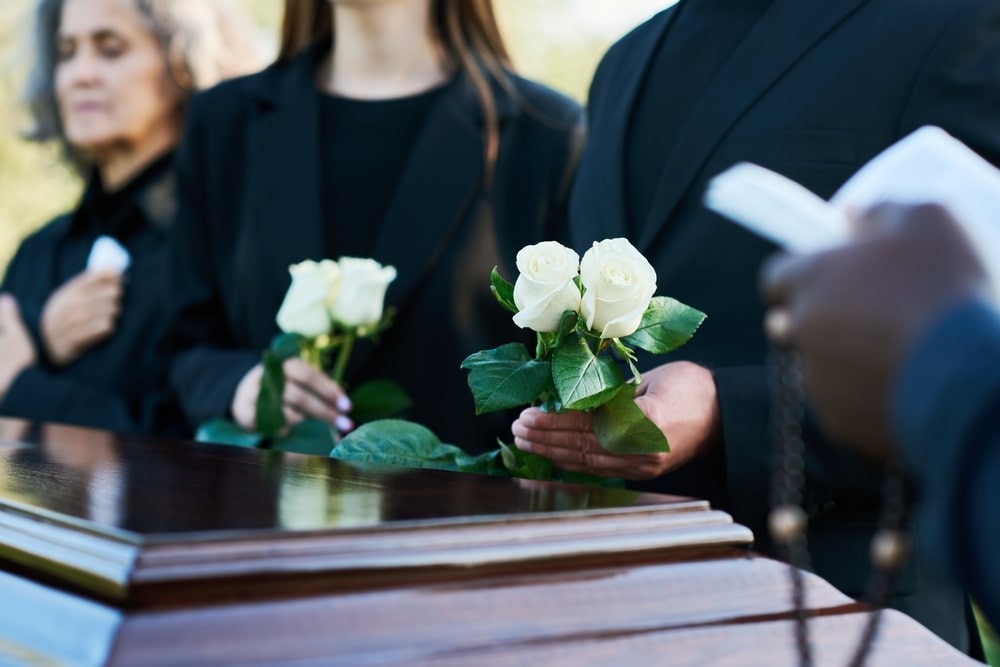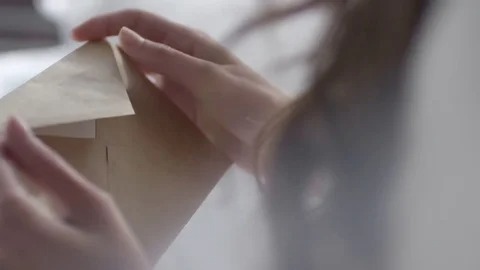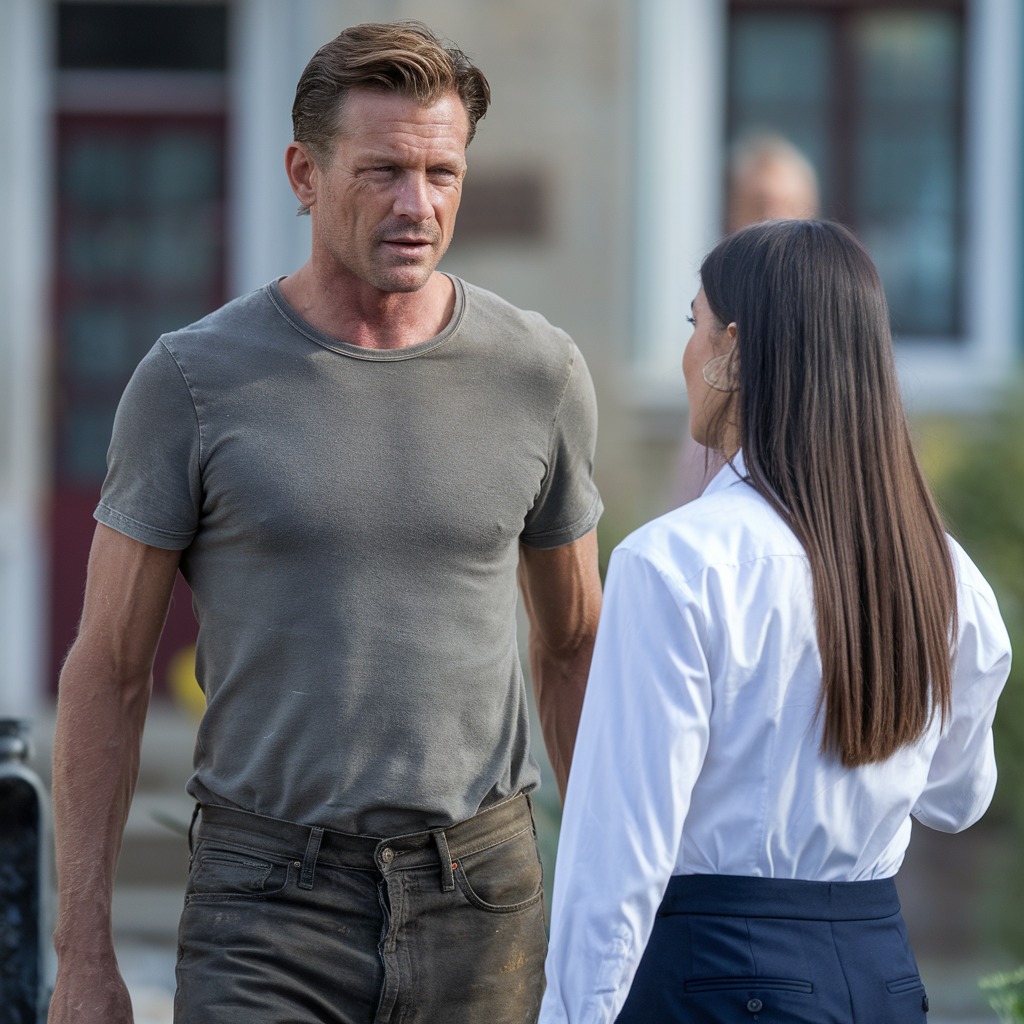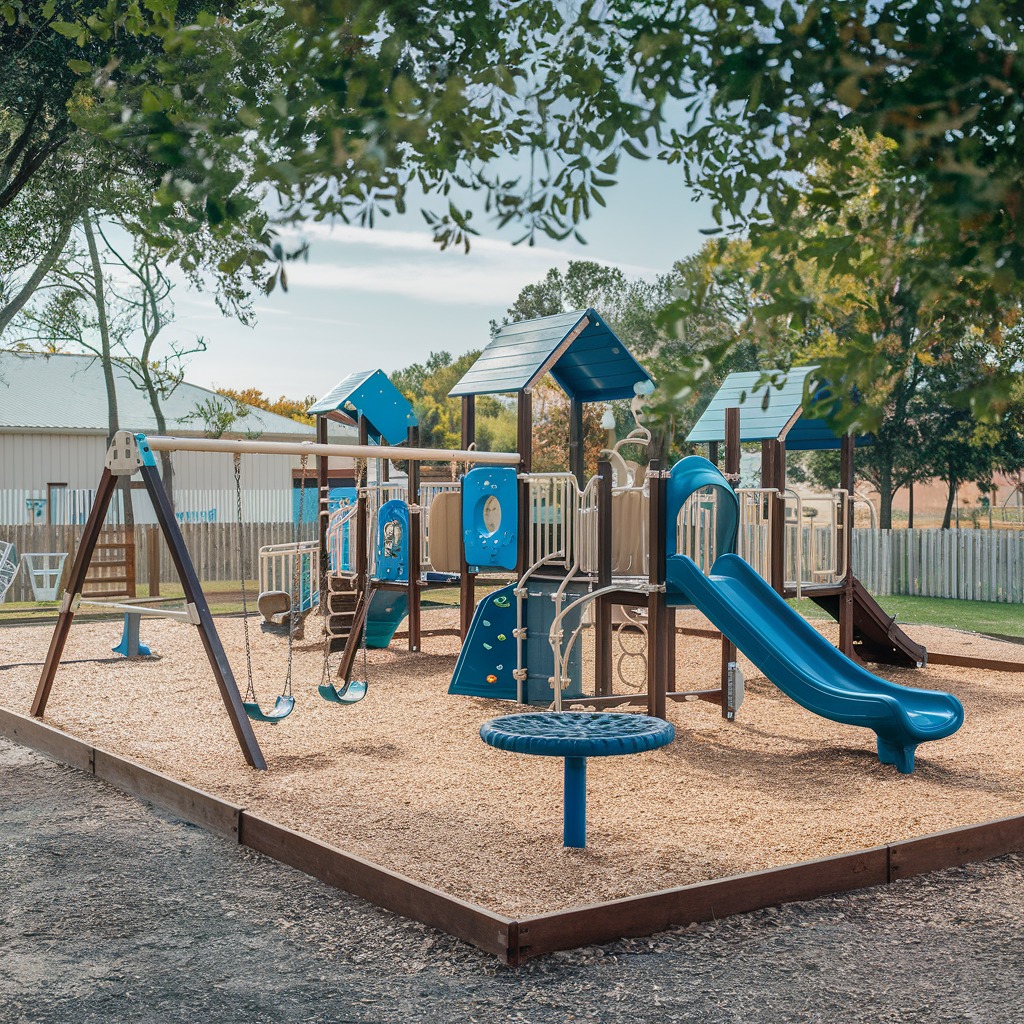My Mother Left Me In Charge Of Her Community Organization After Her Passing – But I Discovered Missing Funds In The Accounts
One day, I received a call from my estranged mother, asking me to return home. However, by the time I arrived, she had already passed away, leaving me to take over her community organization. It was during this transition that I uncovered discrepancies—funds mysteriously “missing” from the accounts.
I’m Veronica Matthews, a young vice president in Manhattan’s bustling finance industry. My life revolves around back-to-back meetings and the relentless pursuit of success. Every move I make is calculated to secure my position at the pinnacle of the corporate world.
This carefully curated existence came crashing down one afternoon when my phone buzzed, displaying a name I hadn’t seen in years—Margaret. My mother. The woman I had spent so long avoiding. I hesitated before answering.

“Veronica, can you come home?” Her voice was weary, unfamiliar. “I need to talk to you. It’s important.”
Annoyance flickered within me as my eyes remained fixed on the reports scattered across my desk. “Mom, I’m really busy right now. I can’t just—”
“Veronica.” Her voice faltered, trembling with an urgency I couldn’t ignore. “I don’t have much time.”
My pen paused mid-air. It had been years since I’d returned to Maine, the place I once called home. I should’ve asked her what was wrong, but instead, I sighed. “Can it wait a few days? I’m in the middle of—”
“You don’t understand.” Her tone was desperate. “Come before it’s too late.”
The call ended, leaving me with a vague promise to “try.” Days later, the news arrived—she was gone.

Stepping off the small plane in Maine, a chill seeped into me. It wasn’t the weather—it was the hollow ache of knowing she wasn’t there to greet me.
Driving through familiar streets in a rented car, I gazed out the window, feeling like time had rewound itself. Weathered wooden houses, roadside shops, and the vast blue ocean stretched endlessly. Everything looked the same, yet I felt completely detached.
When I reached the old house where I’d grown up, a wave of unfamiliar emotions hit me. The peeling wooden walls, dusty windows, and what used to be a vibrant rose garden were now overtaken by wild weeds—all of it was a haunting reminder of what was lost. As I placed my hand on the cold, heavy door, I felt its weight press down on me.
Inside, silence engulfed me. The musty scent of old wood and dampness filled the air. Family photos adorned the walls—pictures of me as a child, beaming next to my parents. Regret stirred deep within.

Howard Greenwood, my mother’s attorney, was the only person waiting for me. He handed me a letter she had left, written in her familiar slanted handwriting that tugged at my heart.
“Veronica,
If you’re reading this, it means I’ve passed on. There’s unfinished business I’m leaving behind, and I need you to carry it forward. You may not understand my reasons now, but I trust you’ll figure it out.
I need you to stay in this town for a year. Complete the community center project—it’s my life’s work, and I know you can do it.
Love,
Mom.”
I stared at the letter, my mind blank. “A year?” I murmured, incredulous.
Howard gave a solemn nod, his gaze fixed on me as though searching for a reaction. “She believed in you, Veronica. This was her final wish.”

My fingers tightened around the letter. A year here would mean leaving behind everything I had worked tirelessly to build in Manhattan—major projects, high-stakes meetings, and a hard-won position for which I had sacrificed so much.
“Mr. Greenwood, I…” I started, ready to dismiss the idea as impossible. But the sight of the house, memories from my childhood, and the faint image of my mother in my mind stopped me mid-sentence. A heavy weight settled over me.
That evening, sitting in the dimly lit living room, I read the letter over and over. Her voice echoed in my mind: “Complete the community center project. It’s my life’s work…”
I closed my eyes, gripping the paper tightly. My entire life, I had chosen the easy route—avoiding my hometown and distancing myself from my mother. But this time, I couldn’t run away.
“Alright, Mom,” I whispered into the stillness of the house. “I’ll do this… for you.” I didn’t know what challenges lay ahead, but for the first time in my life, I felt the need to pause, confront the past, and step into the unknown.

For my first visit to the project site, I chose a crisp white shirt and tailored slacks, determined to maintain a professional appearance—just as I always had in Manhattan meetings. But as I stood before the rundown building designated to become the community center, I couldn’t shake the feeling that I was utterly out of place.
The building looked worse than I had anticipated. The paint on the walls was peeling, several windows were cracked, and weeds crept across the walkway. Looking around, I noticed a group of workers gathered nearby. They stopped talking when I approached, their curious eyes sweeping over me. A few murmurs reached my ears:
“Is that Margaret’s daughter?”
“She looks more like a boss than someone who’s going to get her hands dirty.”
A wave of discomfort washed over me. I tightened my grip on my handbag, silently reminding myself to stay composed.

A man stepped out from the group. He was tall, with sun-weathered skin and a confident demeanor. His old T-shirt and dusty jeans contrasted sharply with his sharp gaze and assured stance.
“You must be Veronica Matthews,” he said, his voice gravelly yet commanding.
“Yes,” I replied, forcing calm into my tone. “And you are…?”
“Jake,” he answered curtly. “Jake Henderson. I worked with your mom on this project.”
His eyes swept over me from head to toe, assessing, even judging. I felt the weight of his scrutiny, along with an unmistakable note of skepticism.
“So,” Jake continued, his lips curving into a faintly mocking smile, “are you here to tie up loose ends and head back to your big city life?”

Straightening my posture, I clenched the straps of my bag. “I’m here to finish this project,” I said evenly. “I have no intention of undermining anyone’s efforts.”
Jake let out a dry chuckle, his gaze fixed on me. “Let’s hope so. This town doesn’t need someone who just sits in an office giving orders.”
His words felt like a blow to my pride. I took a deep breath to steady myself. “I don’t just sit in an office. I’ll be involved and do my part.”
“Good.” Jake crossed his arms, his expression unreadable but his skepticism clear. “We’ll see about that.”
The tension in the air was palpable. It was obvious he didn’t trust me—and he wasn’t trying to hide it. I knew what he was thinking: a city girl playing savior, ready to abandon ship as soon as things got tough.
As Jake turned away to direct the workers, I stood there for a moment, gathering my thoughts. This was my mother’s town, her legacy, and her final wish. I had promised to see it through. No matter how unwelcome I felt, I wouldn’t give up.

My mother’s office had become my refuge, the place where I now spent most of my time. The drawers were crammed with documents, notes, and ledgers filled with her familiar slanted handwriting. I never realized the immense workload she had managed—from planning the community center to coordinating donations for the town.
But as I flipped through the ledgers, something unusual caught my eye. There were funds “missing” from the accounts—transactions without clear origins or destinations.
Frowning, I double-checked to ensure I wasn’t mistaken. I wasn’t. The numbers didn’t lie. Five years ago, my mother had transferred a significant sum from the project’s funds into an unidentified account. It wasn’t a small amount, and what struck me as even stranger was the absence of any explanation in the remaining records.
My hand froze on the page, unease creeping in. Doubt began to cloud my thoughts. I had never questioned my mother, Margaret—a woman beloved by the entire town. But these figures didn’t add up.

I leaned back in the chair, my eyes scanning the room. Her photographs hung on the walls, her confident smile radiating warmth. I recalled the townsfolk’s admiration—“Margaret is the heart of this place,” they often said. Yet now, I couldn’t stop myself from wondering: Was it all just a façade?
Everything I thought I knew felt suddenly unsteady. How could someone like my mother—a woman I had idolized—be capable of something questionable? After wrestling with my thoughts for some time, I picked up the phone and dialed Howard Greenwood, my mother’s attorney.
“Mr. Greenwood, I need to speak with you.” My voice trembled slightly, but I tried to stay composed.
“Of course, Veronica. What’s the matter?” His tone was calm as always, but I couldn’t afford to delay.
“I’ve been going through my mother’s documents, and I noticed…” I paused, taking a deep breath. “Did my mother embezzle town funds?”
There was a long silence on the other end, so much so that I thought the call had dropped.

“Veronica,” he finally replied, his voice lower than usual, “I think you need to uncover the reasons for yourself. Don’t rush to conclusions.”
“Uncover the reasons? What are you talking about? If you know something, please tell me!”
“I can’t speak on Margaret’s behalf. But I can tell you this: you don’t yet understand everything she did or the motivations behind it. Keep looking. I trust you’ll find the answers.”
His words left me unsettled. He neither confirmed nor denied my suspicions. Instead, he had left me suspended in uncertainty. I hung up and placed the phone on the desk, a wave of conflict washing over me. Had I truly misunderstood my mother? Was everything I believed about her merely an illusion?
I stared at the documents before me, my mind spinning. Since returning, I had heard countless stories of her generosity and dedication to the town. But the numbers in these ledgers painted a different picture. Had she betrayed everyone’s trust? Or was she hiding something far greater?

One day, as I stepped out of my car, a man in a black suit approached me. His sharp gaze and purposeful stride sent a jolt of unease through me.
“Robert Caldwell,” he introduced himself, his voice as cold as ice.
“How can I help you?” I asked, masking my apprehension with a calm demeanor.
“I don’t need your help,” he replied sharply. “I’m here to reclaim what’s mine.”
I frowned. “What do you mean by that?”
Caldwell smirked, his expression dripping with disdain. “Your father and I had an agreement. Half of this property—including the house and land—should have been mine. But Margaret kept it all. Now that she’s gone, I’m here to claim my share.”
His words struck me like lightning. “You’re lying!” I exclaimed, my voice trembling with anger. “My father would never do that!”
“Are you so sure?” Caldwell asked with a mocking smile. “You think you know everything about your father? I have proof, Ms. Matthews. And if you don’t believe me, I’ll see you in court.”
After he walked away, I sat in my car, shaken. His words echoed in my mind, dredging up questions I had never dared to ask. My father? An agreement? No. It couldn’t be true. I wouldn’t believe it.

Returning to the house, anger and frustration consumed me. Inside my mother’s old room, I searched frantically, my eyes combing every corner for something—anything—that could explain the situation.
When I opened her wardrobe, a small, hard object fell to the floor—a worn yellow envelope, its edges faded with time. My heart raced as I picked it up and recognized the familiar slanted handwriting on the front: “John.”
Carefully, I opened it. Inside was a handwritten letter. As I read each word, it felt as though time itself had stopped:
“John,
I know you will never forgive me for what I’ve done, but I couldn’t stay silent while others suffered. I had to help them, even if it cost me everything. I only hope you understand that everything I did was for our daughter.
Margaret.”
I couldn’t stop the tears from streaming down my face as I read the final line. The letter was brief, but what it revealed was overwhelming. What had my mother done? She spoke of helping others. Could this be connected to the “missing” funds I had discovered?
I sank into a chair, clutching the letter tightly as my mind raced. Slowly, the stories I’d heard from the townsfolk began to fall into place. My mother had been secretly helping women escape domestic violence. She had sacrificed everything, even harmony with my father, to protect the vulnerable. The missing funds weren’t embezzled—they were the means by which she fulfilled her mission.

I looked around the room, my gaze falling on her belongings. My mother had lived a life of profound purpose and immense sacrifice. She had kept this secret for years, even from me, her daughter.
Placing the letter down, a mix of pain and pride swelled in my heart. Now I knew what I had to do. I had to defend her legacy, even if it meant facing Robert Caldwell—and confronting the painful truths about my father.
The day of the trial arrived, and the courtroom’s tense atmosphere weighed heavily on every breath. Caldwell sat across from me, his demeanor calm, his eyes brimming with smugness. Beside him was a polished lawyer, no doubt handsomely paid to distort the truth.
Caldwell’s lawyer began his argument. “Your Honor, Margaret Bennett, the defendant’s mother, abused her position in this town to embezzle charitable funds. Significant amounts were withdrawn from accounts related to the community center, with no explanation for their use.” I clenched my fists, anger simmering within me.

The lawyer pressed on, his tone growing sharper. “These actions were not only illegal but also a betrayal of the community’s trust. We ask the court to grant ownership of the property to Mr. Caldwell, who has a stronger legal and moral claim to manage it.”
Caldwell leaned back in his chair, his expression triumphant.
I stood, the weight in my chest replaced by resolve. “No!” My voice rang out across the courtroom. “What he’s saying is not true!”
Every eye turned to me.
“My mother didn’t misuse charitable funds. She used that money to protect the vulnerable—to help women and children who had no voice. This wasn’t embezzlement—it was sacrifice.”
I reached into my bag and pulled out my father’s letter, holding it high. “And this is evidence that my father relinquished his claim to this property to keep it safe because he believed in what my mother was doing.”

The letter was submitted as evidence. Its contents, combined with testimonies from women my mother had helped, turned the tide.
One of the women, Rita, stood to testify. Her voice quivered as she recounted how Margaret had rescued her and her daughter from an abusive husband. “Margaret didn’t just give us a place to escape—she gave us hope and a chance to rebuild our lives.”
Similar stories followed, each one striking a blow to Caldwell’s arguments.
When the judge ruled that the property would remain dedicated to serving the community, Caldwell rose silently and left, defeated. I sank into my chair, tears flowing freely—this time tears of relief and pride.
I decided to stay in the town. Instead of simply completing the community center as my mother had wished, I began transforming it into a comprehensive support network.
We expanded services to include skills workshops, educational programs for children, and counseling services for women. The center became more than just a building—it became the heart of the community.
Jake, who had once seen me as an outsider, became my closest ally. He helped me connect with the town, lead projects, and never hesitated to commend my efforts.

One afternoon, as we stood before the newly completed playground, Jake smiled. “You did it, Veronica. Margaret would be proud.”
I looked at him, gratitude welling up inside me. “Not just me. Thank you, Jake.”
Living in this town changed me. I once thought success was defined by titles and bank balances. But now I understand that true success lies in living for something greater than yourself.
My mother sacrificed her life to bring joy to others. I will carry on her legacy—not just to keep my promise, but because I’ve found the true meaning of life.
In a letter I wrote to her, I said: “Thank you, Mom, for teaching me how to love and believe in the power of community. I’m proud to be your daughter.”
Today, the Margaret Bennett Community Center stands as a symbol of love and sacrifice. And though she’s no longer here, I know she’s watching, smiling with pride.
This story draws inspiration from real-life events and individuals, but it has been adapted and fictionalized for creative expression. Names, characters, and specific details have been altered to protect individuals’ privacy and to enhance the storyline. Any similarity to real persons, living or deceased, or actual events is coincidental and unintentional.

